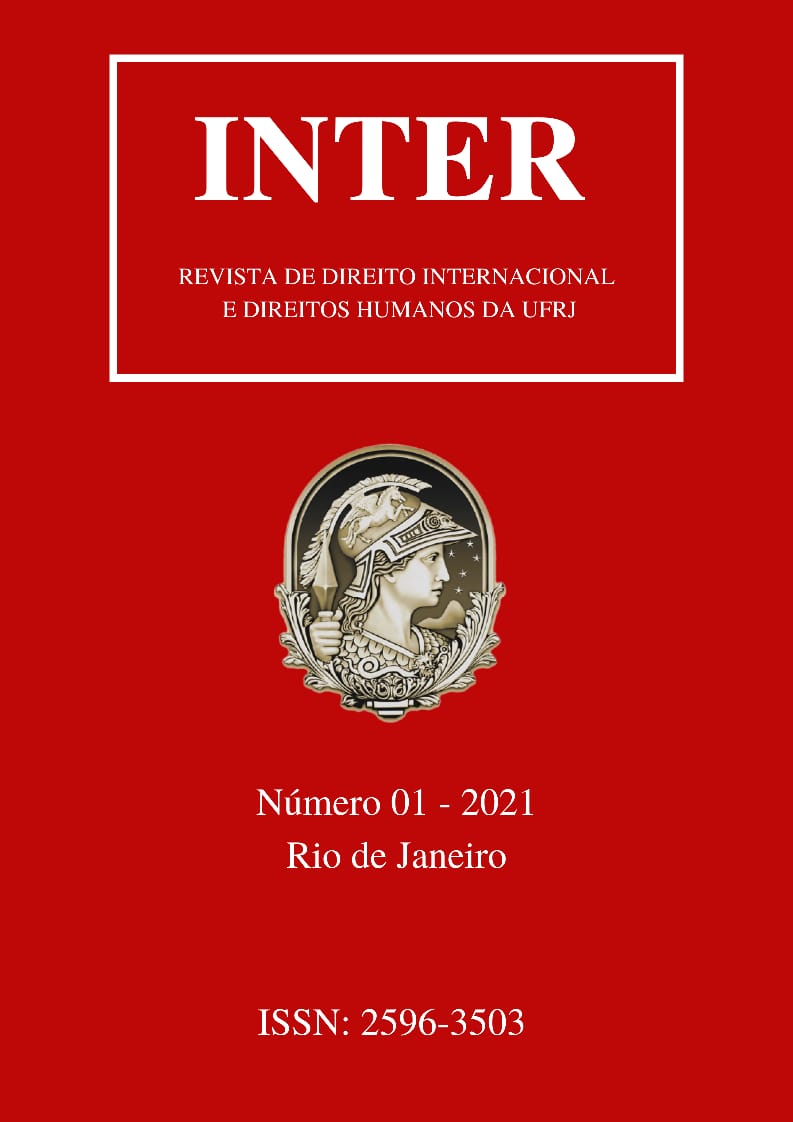OBRIGAÇÕES POSITIVAS NA JURISPRUDÊNCIA DA CORTE EUROPEIA DE DIREITOS HUMANOS: PERSPECTIVAS PARA A EFETIVIDADE DOS DIREITOS ECONÔMICOS, SOCIAIS E CULTURAIS
Palavras-chave:
Obrigações Positivas, Corte Europeia de Direitos Humanos, Balanceamento, Convenção Europeia de Direitos Humanos.Resumo
A Corte Europeia de Direitos Humanos, através do desenvolvimento dos seus julgados, interpreta e aplica os direitos estabelecidos na Convenção Europeia de Direitos Humanos usando a dogmática dos deveres de respeitar, proteger e promover. Utiliza também o critério do balanceamento como forma de conciliar o cumprimento dos Estados Partes da Convenção para com as normas estabelecidas, sem desrespeitar o limite democrático, o que confere legitimidade às suas decisões. Todo esse aparato decisório contribuiu para proporcionar efetividade aos Direitos Econômicos, Sociais e Culturais presentes na Convenção.
Downloads
Referências
AKANDJI-KOMBÉ, Jean François. Positive Obligations under the European Convention on Human Rights – a guide to the implementation of the European Convention on Human Rights. Human right handbooks. Estrasburgo: nº 7. Council of Europe, 2007a.
AKANDJI-KOMBÉ, Jean François. Positive obligations under the European Convention on Human Rights. Human Rights handbooks nº 7. Belgium: Council of Europe, 2007. Disponível em: http://www.refworld.org/pdfid/49f183a32.pdf. Acesso em 02 de fev. 2012b.
ALEXY, Robert. Teoria dos Direitos Fundamentais. 2º ed. São Paulo: Malheiros Editores, 2012a.
ALEXY, Robert. Balancing, constitutional review, and representation. Oxford University Press and New York University School of Law, n.4, v.3, p. 572–581, 2005.
BARRETO, Irineu Cabral. A Convenção Europeia dos Direitos do Homem – anotada. Coimbra: 4º ed, 2010.
BREMS, Eva, Indirect Protection of Social Rights by the European Court of Human Rights. In: BARAK–EREZ Daphne e M GROSS, Aeyal (org). Exploring Social Rights – between theory and practice. Oxford: Hart Publishing. 2007.
CHRISTOFFERSEN, Jonas. Fair Balance: Proportionality, Subsidiarity and Primarity in the European Convention on Human Rights (International Studies in Human Rights). Laiden, Boston: Martinus Nijhoff Publishers, 2009.
EIDE Asbjorn. Economic, Social, and Cultural Rights as Human Rights. In: EIDE Asbjorn. KRAUSE, Catarina, ROSAS, Allan. Economic, Social, and Cultural Rights: a textbook. Laiden, Boston: Martinus Nijhoff Publishers,1995.
ELY, John Hart. Toward a Representation-Reinforcing Mode of Judicial Review. Maryland Law Review v. 37 nº3 1978.
ELY, John Hart. Democracy and Distrust: A Theory of Judicial Review. Harvard University Press. 1980.
FREDMAN, Sandra F.B.A. Human Rights Transformed: positive rights and positive duties. New York: Oxford Scholarship online, 2008.
FULLER, Lon L. The forms and Limits of Adjudication. Harvard Law Review, Vol. 92, No. 2 (Dec., 1978), pp. 353-409 em Abramovich, Víctor. Linhas de Trabalho em Direitos Econômicos, Sociais e Culturais: Instrumentos e Aliados. SUR – Revista Internacional de Direitos Humanos.
HARRIS, David. O’BOYLE, Michael e WARBRICK, Colin. Law of the European Convention on Human Rights. 2ª ed. New York: Oxford University Press, 2009.
KAREL, VASAK. A 30- Year Struggle the sustained efforts to give force of law to the Universal Declaration on Human Rights. The Unesco Courier”, November 1977.
MARSHALL, Thomas Humphrey Citizenship and Social Class – and other essays. Cambrige: Cambrige Univesity Press.1950.
MIRANDA, J. Escritos Vários sobre Direitos Fundamentais. Estoril: Principia Editora. 2006.
NOVAIS, J.R. Direitos Sociais – Teoria jurídica dos direitos sociais enquanto direitos fundamentais. Coimbra: Coimbra Editora, 2010.
PALMER, Ellie. Judicial Review, Socio-Economic Rights and the Human Rights ACT (Human Rights Law in Perspective). Irish Academic Pr, 2009.
PIOVESAN, Flávia: Direitos Humanos: desafios e perspectivas contemporâneas. Brasília: Rev. TST, vol. 75, nº1, jan/mar 2009.
TRINDADE, Antônio Augusto Cançado. A Justiciabilidade dos Direitos Sociais Econômicos e Culturais no Plano Internacional. in Presente y Futuro de los Derechos Humanos: Ensayos en honor a Fernando Volio Jiménez. San José, Costa Rica. Inter-American Institute of Human Rights, 1998.
SCAFF, Fernando Facury in MARTINS, Ives Gandra Contribuições de Intervenção e Direitos Humanos de Segunda Dimensão. São Paulo: RT, 2002.
SCOTT, Craig. The Interdependence and Permeability of Human Rights Norms: Towards a Partial Fusion of International Covenants on Human Rights in Hein OnLine: 30 Hum. Rts. Q. 9842008, 1989.
SHANY, Yuval. Stuck in a Moment in Time: The International Justiciability of Economic, Social and Cultural Rights in BARAK–EREZ Daphne e M. GROSS, Aeyal (org). Exploring Social Rights – between theory and practice. Oxford: Hart Publishing. 2007.
SHUE, Henry. The Interdependence of Duties. In ALSTON, Philips e TOMASEVSKI, Katarina. The Right to Food. Uthrecht: netherlands institute of human rights, 1984.
SUSTEIN, Cass R. Response: From Theory to Practice Order of the Coif Lecture: Response. Arizona State Law Journal, 29. 1997.
VAN HOOF, G.J.H. The Legal Nature of Economic, Social and Cultural Rights: a Rebuttal of Some Traditional Views, in ALSTON, Philips e TOMASEVSKI, Katarina. The Right to Food. Uthrecht: netherlands institute of human rights, 1984.
WALDRON, Jeremy. Law and Disagreement. Oxford. 1999.
WHELAN. Daniel J. Untaling the Indivisibility, Interdependency, and Interre-latedness of Human Rights. Economic Rights Working Paper Series. Hendrix College. The Human Rights Institute. University of Connecticut, april 2008. Disponível em: http://www.academia.edu/641545/Untangling_the_Indivisibility_Interdependency_and_Interrelatedness_of_Human_Rights. Acesso em: 02 fev. 2020.
XENOS. Dimitris. The Positive Obligations of the State under the European Convention of Human Rights. London and New York: Routeledge, 2012.

